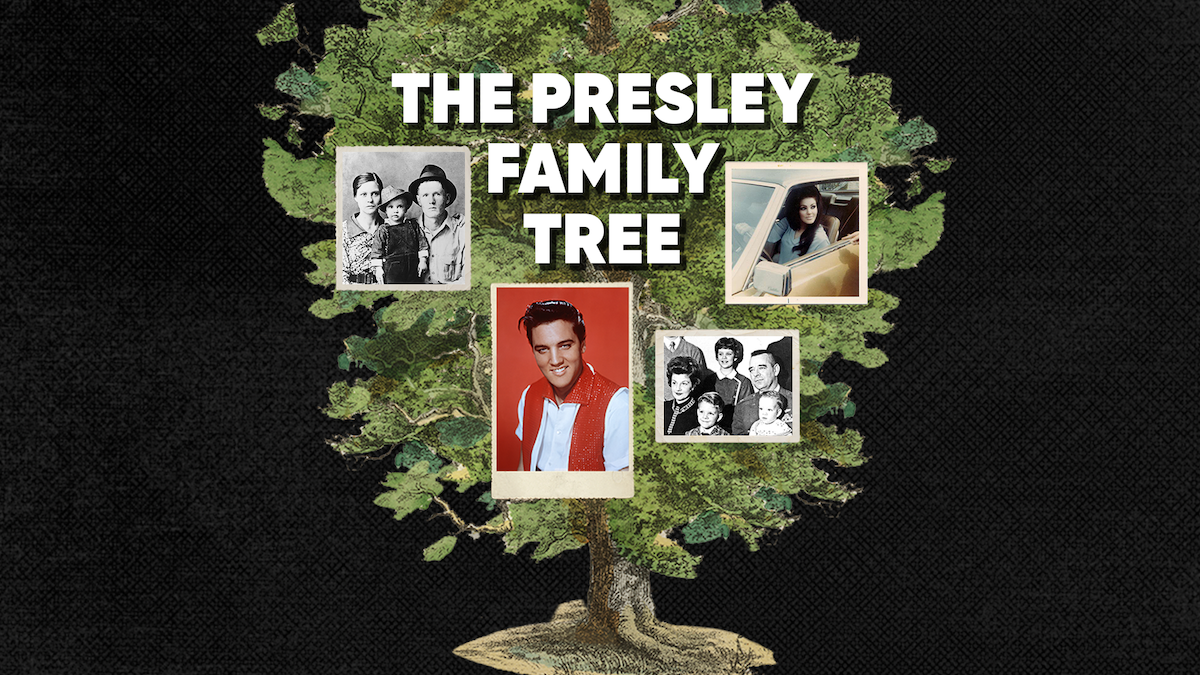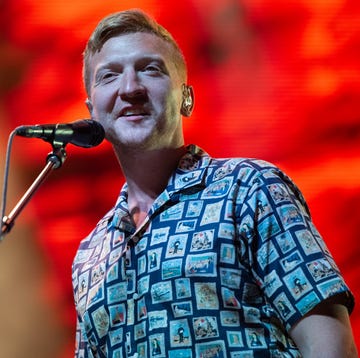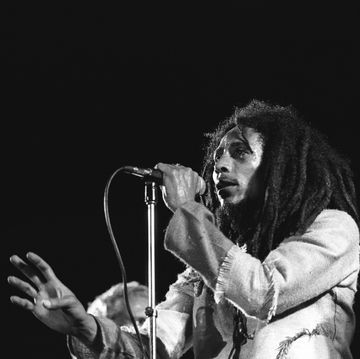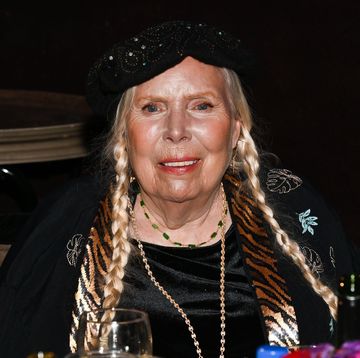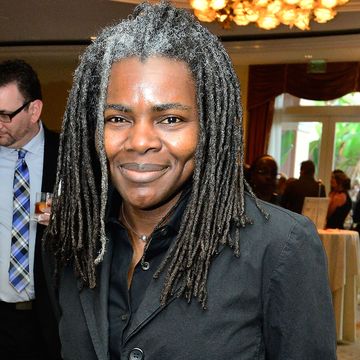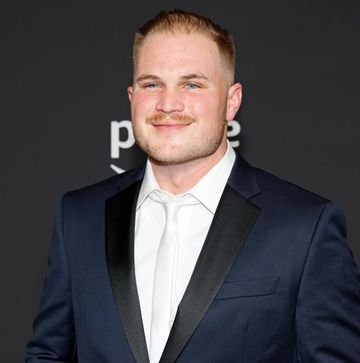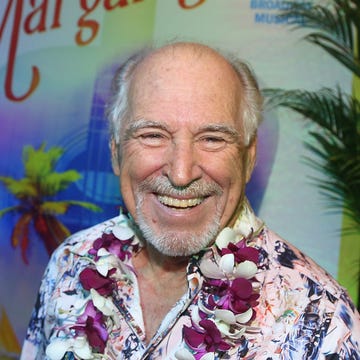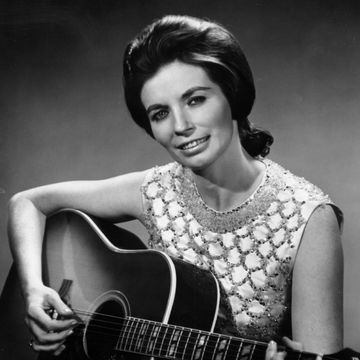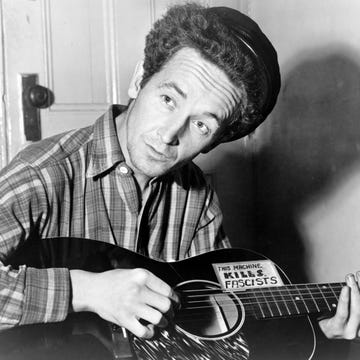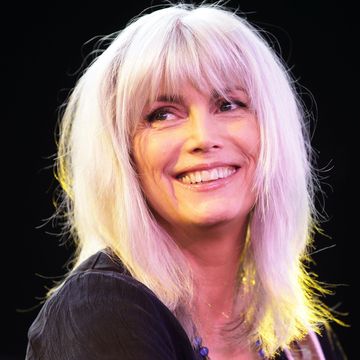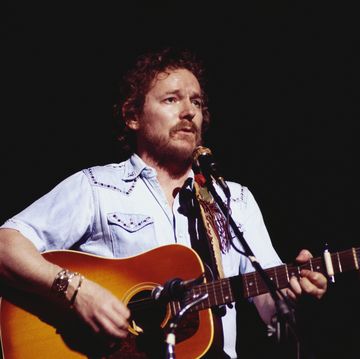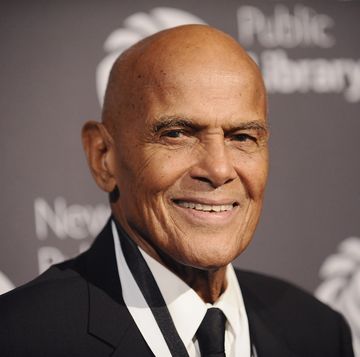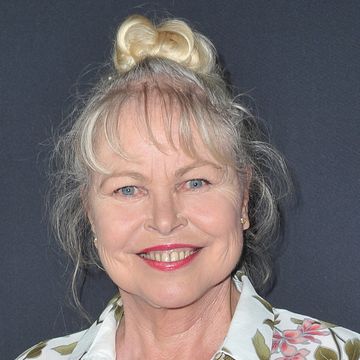(1992-)
Who Is Rosalía?
Born in Barcelona on September 25, 1992, Rosalía Vila Tobella—known mononymously Rosalía—is a Spanish singer and songwriter who rose to fame for redefining the sounds of flamenco, a traditional Spanish art style based in folk music, often fusing it with hip-hop influences.
After establishing herself in Catalonia, she found mainstream success with her single “Malamente” in 2018. She also collaborated with Colombian rapper J Balvin on “Con Altura,” which was released in March 2019 and reached one billion views on YouTube by that October.
Rosalía has won 13 Latin Grammy Awards, including the 2019 and 2022 Grammy for best Latin rock, urban or alternative album, making her the first woman to win album of the year twice. In 2019, she also became the first best new artist nominee to be honored for a Spanish-language album. She also appeared in the Oscar-nominated 2019 Spanish film Dolor y Gloria (Pain and Glory), starring Antonio Banderas and Penélope Cruz.
Early Life and Discovering Flamenco
Growing up just north of Barcelona in Sant Esteve Sesrovires, Rosalía discovered the power of her voice when she was 8 years old. “We were spending time with a bunch of relatives who happened to be not that close to us,” she told the Los Angeles Times. “And my father asked me to sing something…I closed my eyes and sang. When I opened them, everyone at the table was moved to tears. It was an early sign that music could become a vehicle of expression.”
While her parents listened to Bob Dylan and Janis Joplin, Rosalía found hip-hop at 11 and eventually started listening to flamenco with friends, many of whom had family roots in Andalusia, where the music form originated. When she was 13, she heard flamenco great Camarón de la Isla’s music blasting out of a friend’s car and dedicated herself to learning the complicated style of music by taking dance classes and immersing herself in Camarón’s albums.
“Flamenco is a strongly traditional, deep-rooted music genre,” she described to Dazed. “Some people say that flamenco is the ‘Andalusian belcanto’. It’s both complex and emotional, and it has been declared World Cultural Heritage by UNESCO. It is taught in schools nowadays, where it enjoys the same status as jazz or classical music, it goes beyond any trends.”
Reality Show Disappointment and Vocal Surgery
At 15, Rosalía appeared on the Barcelona talent competition show “Tú Sí Que Vales.” Failing to impress judges with a flamenco tune by Hanna, “Como en un Mar Eterno,” she sang a few lines of Alicia Keys’ “No One” a cappella, sending her into the next round. She ultimately did not advance in the competition.
That harsh reality made her recalibrate her approach to music, and she dove into composition. “I wanted to have absolute control over my music from the chords and the voicing of the songs to the arrangements and the production,” she told The New York Times.
The Spanish teen soon hit another sour note. Misusing her voice while trying to mimic the powerful sounds she longed for, she damaged her vocal cords and needed surgery. “For a whole year, I was in rehabilitation, just listening to music,” she told Billboard of the time when she was just 16. “I learned how to really listen.”
After letting her voice come back, she was determined to learn how to sing the correct way. “I sang with fear after my operation,” she told the Times. “I didn’t want to damage my cords again. And I had to sort of relearn to sing.”
Flamenco Education and Training
Around this time, renowned music professor José Miguel Vizcaya (who uses the stage name El Chiqui de la Línea) from Barcelona’s selective music school La Escola Superior de Música de Catalunya was taking on a few teenage students at another of the city’s schools. After hearing Rosalía sing, he determined she was ambitious but an amateur. Rosalía decided to start learning from scratch under Vizcaya’s instruction.
She got a masterclass in technique, including how to improvise melismas—the vocalization of several notes over a one lyric syllable. “In classes, when she sang the things that I assigned her, and she interpreted them, I couldn’t stand how well she did it,” he told The New York Times. “She was tremendous.”
When Vizcaya went back to La Escola Superior de Música de Catalunya, which only takes one student a year into its flamenco program, Rosalía applied and got the spot. “I didn’t feel like I 100 percent belonged there,” she told Vogue. “I always wanted to experiment making videos, making shows, with dancing. None of that was present there. Everything was super technical.”
She found other ways to expand her creativity, especially by perfecting her stage presence. She performed everywhere, from jazz bars and hip-hop jam sessions to weddings and restaurants, eventually taking her talents abroad to a Panama film festival and Singapore theater production. She contrasted that by joining a baroque choir and recording music for commercials.
How Did Rosalía Become Famous?
Rosalía independently released her debut Los Ángeles—described as an “experimental flamenco album” in her official bio—through a Universal distribution deal in 2017. Soon after, industry buzz around her started to mount.
In May 2018, she released a new single, “Malamente,” which immediately captured audiences with its hand-clapping intro—and quickly became one of Billboard’s "Songs That Defined the Decade." That became the lead single off her sophomore release El Mal Querer (which translates roughly to The Bad Love), which was released that November as a joint venture between Columbia and Sony Music Latin, debuting at No. 1 on the Latin Pop Albums chart.
The concept behind the album started with her university thesis, telling the story of a 13th-century Spanish novel Flamenca about a bride imprisoned by an overbearing husband, while its sound is described as a “fully realized fusion of classic flamenco, with R&B, hip-hop, contemporary Latin American rhythms and electronic beats.”
A major part of Rosalía’s artistry is the images she portrays in her music videos. For example, in “Pienso en Tu Mirá,” she contrasts dancing in front of big rigs with loading a rifle with a literal bull’s eye. “The visuals are there to enhance my own radical approach to music,” she told Rolling Stone. “I [use] the Spanish cultural imaginary: My town is very industrial, so truck drivers are part of my [imagery]. My grandmother took me to mass on weekends—I have memories of all that. I use all those cultural elements that are so present in my society, the Spanish society [in which] I grew up.”
Response to the album included Latin Grammy Awards for best contemporary pop vocal album and album of the year and the 2019 Grammys trophy for best Latin rock, urban or alternative album. However, she has also received criticism from some groups for cultural appropriation of the flamenco genre.
'Con Altura' with J Balvin and Other Collaborations
Rosalía’s international fame truly skyrocketed when she partnered again with J Balvin—who she had worked with on 2018’s “Brillo”—for a one-off single. The duo produced “Con Altura,” meaning “With Height,” in 2019.
“When I was younger, I loved listening to reggaeton,” she said in a press release, according to Rolling Stone. “It wasn’t until a few months ago in a studio in Miami [when] I started writing in this direction: I proposed to my co-writers that we work with a Dominican sample I found. Then Frank Dukes added his own sample, and El Guincho added percussion, and the record was born: a Barcelonan-American-Latin pop vibe. I didn’t hesitate to show the song to my friend Jose (J Balvin), and he loved the track and sent over such a fresh and raw verse.”
The track took off, in part, due to its music video featuring Rosalía dancing on a private jet. It earned her the title of most-watched global YouTube video of 2019 for a female artist and broke the one billion views mark less than six months after its premiere.
Rosalía continued to collaborate, with all five of her Billboard Hot 100-ranking tracks recorded with other famous names: “La Noche de Anoche” with Bad Bunny; “Relacion” with Sech, Daddy Yankee, J Balvin and Farruko; “TKN” with Travis Scott; “Lo Vas A Olvidar” with Billie Eilish and “La Fama” with The Weeknd. She also appeared in Cardi B’s video for “WAP,” featuring Megan Thee Stallion.
Motomami: 'Most Personal Story I’ve Told'
While her first two albums—and so many collaborations—came in quick succession, she paused a beat before her third album, Motomami, released in March 2022. “In these last three years, I’ve wanted to focus my energy on giving this album a sense of risk and excitement overall,” she told Rolling Stone.
During that time, she had the chance to look inward. “I spent a lot of time alone,” she continued. “There was a lot of time when I struggled and felt on the edge of an abyss... On other records, I always had company, even when I was the one pushing things forward because I had a clear picture. In this case, more than ever, I felt the weight and the responsibility of the entire project.”
The result of that internal struggle is what she calls the “most personal story I’ve told,” with the concept of Motomami being a “feminine figure building herself.”
Recorded in Puerto Rico, the Dominican Republic, New York, Miami, Los Angeles and Barcelona, the record is inspired by the Latin music she and her cousins danced to when she was young, she told The New York Times. That personal touch helped make Motomami her first record to hit the Billboard 200 chart, peaking at No. 33 and spending four weeks on the list.
Motomami won album of the year at the 2022 Latin Grammy Awards, making Rosalía the first woman to win the award twice.
Film Career
Beyond music, Rosalía has also branched out into acting, filming a scene for Oscar-winning director Pedro Almodóvar’s 2019 film Dolor Y Gloria (Pain and Glory), which starred Banderas and Cruz.
The director became a fan after seeing one of her live shows in 2017. “Pedro is a good friend of mine,” she told Rolling Stone. “He said that he always connected with the way I compose and the way I do music.”
The film was nominated for a 2020 Academy Award for international feature film from Spain but lost to South Korea’s Parasite. Rosalía also had another link to her co-star: That same year, she was honored with the Antonio Banderas Performing Arts Award; at the ceremony, he called her “the future of the performing arts.”
Female Empowerment
Rosalía has also been a longtime advocate for women’s rights in every aspect of her life. “I’ll never get tired of fighting until I see equal numbers of men and women in a recording session,” she told Dazed. “In the studio, on the stage, to companies. I’ll fight until all those women are given the same value as naturally as it is given to men.”
She employs an all-female team, including her manager mom Rebeca León and stylist sister Pilar. Her shows and videos also feature female dancers.
Rosalía chose the title of her third album for its femininity. “So, when you talk to me about feminism, I think that’s implicit in the intention—it’s very radical, and it’s very much present in some songs...” she told Rolling Stone, adding that she hopes Motomami can be a “counterbalance” to misogynist tropes.
QUICK FACTS
- Birth Year: 1992
- Birth date: September 25, 1992
- Birth City: Barcelona
- Birth Country: Spain
- Best Known For: Rosalía is a Grammy-winning singer-songwriter from Spain.
- Industries
- Film
- Music
- Astrological Sign: Libra
- Nacionalities
- Spanish
- Interesting Facts
- Rosalía had the most watched global YouTube video for a female artist in 2019.
- Occupations
- Musician
- Actor
Fact Check
We strive for accuracy and fairness.If you see something that doesn't look right,contact us!
CITATION INFORMATION
- Article Title: Rosalía Biography
- Author: Biography.com Editors
- Website Name: The Biography.com website
- Url: https://www.biography.com/musicians/rosalía-vila-tobella
- Access Date:
- Publisher: A&E; Television Networks
- Last Updated: November 18, 2022
- Original Published Date: August 11, 2022
QUOTES
- You can’t really compose music without life experiences.
- It would be too selfish of me to make music that only satisfies me.
- My studio approach is experimentation, always.

